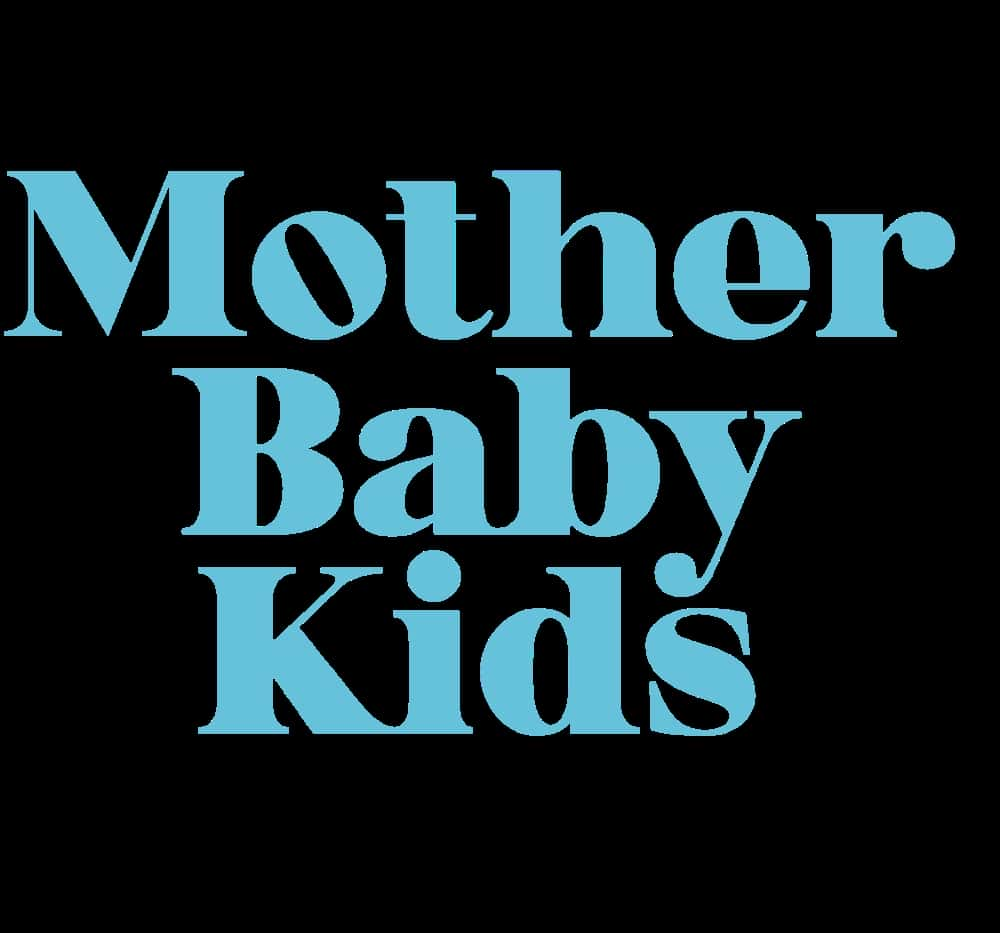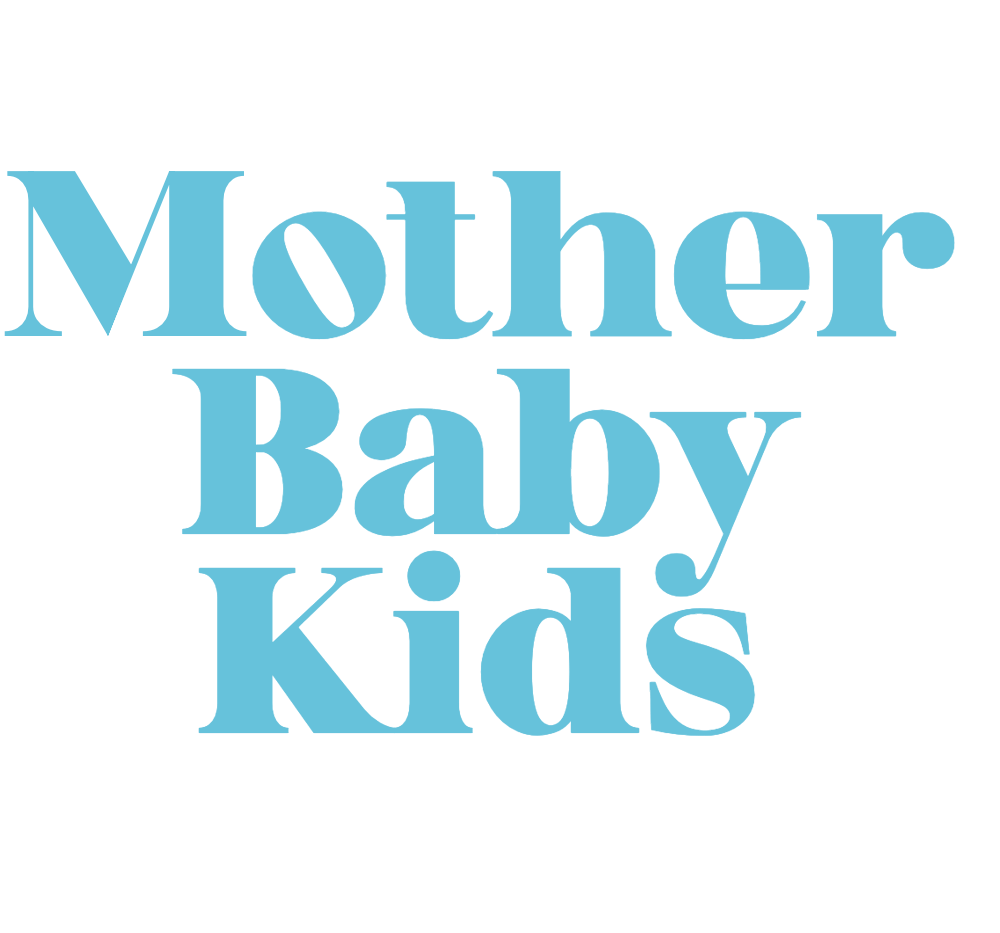Second Trimester
10 Causes of Sharp Breast Pain in Pregnancy's Second Trimester
Wander through the web of causes behind sharp breast pain in pregnancy's second trimester, uncovering surprising insights that will keep you intrigued.

During the second trimester, navigating the complexities of pregnancy can often seem like solving an intricate puzzle.
As we explore the labyrinth of causes behind sharp breast pain during this important period, we uncover a tapestry of interconnected factors that may surprise even the most seasoned parents-to-be.
From hormonal fluctuations to muscle tension, each thread woven into this fabric of discomfort offers a unique insight into the intricate workings of the pregnant body.
Key Takeaways
- Hormonal changes like increased estrogen and progesterone levels cause sharp breast pain in the second trimester.
- Blood flow and vessel changes support breast growth, leading to sharp pains due to increased circulation.
- Breast sensitivity and tenderness intensify, partly due to hormonal surges, contributing to sharp pains.
- Milk duct and gland changes, essential for lactation, can cause sharp pains as they grow and stretch.
Hormonal Fluctuations
Hormonal fluctuations during the second trimester of pregnancy can cause sharp breast pain as estrogen and progesterone levels increase. These hormonal changes lead to the growth and stretching of milk ducts and glands in the breasts, preparing them for lactation. As estrogen and progesterone surge, the breasts become more sensitive and tender, often resulting in sharp, shooting pains.
The increased levels of estrogen and progesterone contribute to the temporary discomfort experienced in the breasts during this stage of pregnancy. The body's pivotal shifts play an important role in getting the breasts ready for milk production, causing sharp breast pain as the ducts and glands undergo changes. This process can be intense, with many women experiencing sharp sensations and tenderness in their breasts due to the hormonal fluctuations.
Understanding that these sharp breast pains are a natural part of the body's preparation for breastfeeding can provide reassurance during this period of discomfort. While the symptoms may be challenging, they're typically temporary, resolving as the body adjusts to the hormonal changes.
Increased Blood Flow
During the second trimester of pregnancy, our bodies undergo significant changes to accommodate the growing baby. This includes an increase in blood flow to the breasts. This heightened circulation can lead to sharp breast pain as blood vessels dilate and hormonal shifts occur.
Understanding how these factors impact our breast tissue can help us manage the discomfort effectively during this pivotal stage of pregnancy.
Blood Vessels Dilating
With blood vessels dilating to accommodate increased blood flow, the sensation of sharp breast pain in the second trimester of pregnancy can be attributed to the physiological changes supporting the growth of the breasts. This temporary discomfort arises from the heightened circulation necessary to meet the nutritional and oxygen requirements of the developing breast tissue. The intermittent pain experienced is a normal aspect of pregnancy changes and reflects the body's adaptation to the expanding blood vessels. Understanding that these sensations are part of the body's natural response to pregnancy can provide reassurance to individuals experiencing sharp breast pain. Below is a table summarizing the key points related to blood vessels dilating and the resulting increased blood flow in the breasts:
| Key Points |
|---|
| Blood vessels dilating |
| Increased blood flow |
| Physiological response |
Hormonal Changes Impact
The impact of hormonal changes on increased blood flow to the breasts during the second trimester of pregnancy can lead to heightened sensitivity and sharp pains in the breast tissue.
This surge in hormones, particularly estrogen and progesterone, plays a vital role in preparing the body for lactation. As a result, the breasts become more sensitive, making women more prone to experiencing sharp, intermittent pains.
The increased blood flow to the breasts can cause tingling sensations and a feeling of fullness as the milk ducts expand and stretch. This combination of hormonal changes and heightened blood circulation in the second trimester can manifest as shooting or burning pain, creating discomfort for expectant mothers.
Milk Duct Changes
As milk ducts undergo changes in preparation for lactation during the second trimester of pregnancy, sharp breast pain may occur due to the growth and stretching processes. These changes are essential for the body's readiness to produce milk for the baby after birth.
While the discomfort and sharp breast pain experienced during this time can be concerning, it's often a temporary and normal part of the lactation preparation journey. Hormonal fluctuations in the second trimester can also contribute to increased sensitivity in the breast tissue, intensifying the sensations experienced.
It's important to remember that these changes are a natural part of pregnancy and are typically not a cause for alarm. However, consulting a healthcare provider can provide reassurance and make sure that the sharp breast pain isn't indicative of any underlying issues.
Breast Tissue Expansion
As our bodies prepare for the miracle of breastfeeding, the expansion of breast tissue during the second trimester can trigger sharp pain. Hormonal shifts impact the growth of milk ducts and glands, while increased blood flow heightens nerve sensitivity, leading to these discomforts.
This process can be intense and may manifest as sharp, shooting pains that fluctuate throughout this vital stage of pregnancy.
Hormonal Changes Impact
Undergoing hormonal changes in the second trimester of pregnancy greatly impacts breast tissue expansion, leading to sharp pains in the breasts. These changes are essential for preparing the body for lactation and nurturing the developing fetus.
Here are key points to take into account:
- Estrogen and Progesterone Levels: Increased levels of these hormones play an important role in stimulating the growth of milk ducts and glands, resulting in breast enlargement.
- Sensitivity and Discomfort: Hormonal fluctuations also contribute to heightened blood flow to the breasts, increasing sensitivity and discomfort.
- Structural Changes: The dynamic changes in breast structure and function during the second trimester can lead to sharp, shooting pains in the breasts, which are a common symptom of pregnancy.
Understanding these hormonal impacts can provide reassurance as you navigate the discomforts of pregnancy.
Increased Blood Flow
Have you ever wondered how increased blood flow during pregnancy's second trimester contributes to the expansion of breast tissue, leading to sharp breast pain?
The surge in blood circulation plays a critical role in supporting the growth and development of breast tissue. As blood flow increases, the expanded breast tissue becomes more sensitive and responsive, often causing sharp, shooting pains.
This heightened sensitivity is a result of the additional nutrients and oxygen that the blood delivers to the breasts, supporting milk duct development and glandular changes. Additionally, the increased blood flow can trigger nerve responses, leading to sharp, stabbing sensations in the breasts.
Understanding the impact of increased circulation on breast changes helps explain the sharp pains experienced during the second trimester of pregnancy.
Nerve Sensitivity Heightened
Heightened nerve sensitivity during breast tissue expansion in the second trimester of pregnancy can lead to sharp and shooting pains experienced by expectant mothers. This sensitivity is influenced by hormonal changes and increased blood flow, making the nerves more reactive to stimuli.
The stretching of breast tissue and ligaments adds to the discomfort, causing sharp, shooting pains that can be intense. Hormonal fluctuations further heighten nerve sensitivity, exacerbating the sharp pain felt in the breasts during this stage of pregnancy.
Understanding these physiological changes can help expectant mothers navigate the discomfort they may experience. Seeking support and communicating any concerns with healthcare providers is crucial to ensure a smooth and healthy pregnancy journey.
Ligament Stretching
Experiencing ligament stretching during the second trimester of pregnancy can lead to sharp breast pain as the body readies itself for childbirth. The vital ligaments, essential for supporting the uterus, can tug on the chest muscles, causing sudden and intense pains in the breasts. These sharp sensations are often felt on the sides of the breasts and tend to occur when changing positions or making abrupt movements like getting up quickly or shifting in bed.
It's important to recognize that this ligament pain is a normal part of pregnancy and isn't typically a cause for concern. Understanding that these discomforts are a natural consequence of the body preparing for childbirth can help alleviate worries about sharp breast pain in the second trimester. Embracing this aspect of pregnancy with patience and reassurance can assist in managing these temporary but sometimes intense sensations.
Hormone-Induced Breast Growth
During the second trimester of pregnancy, hormonal changes impact breast tissue, leading to rapid growth that can result in tenderness and sharp pains. Estrogen and progesterone levels rise, stimulating the development of milk ducts and lobules, which may cause shooting pains.
It's common for pregnant individuals to experience discomfort as their breasts undergo hormone-induced growth to prepare for lactation.
Hormonal Changes Impact
The impact of hormonal changes in the second trimester of pregnancy prominently manifests through hormone-induced breast growth, driven by elevated levels of estrogen and progesterone. These hormonal shifts stimulate the development of milk ducts and glands, preparing the breasts for lactation. As a result, the breasts enlarge, become more sensitive, and may experience sharp, shooting pains as they rapidly stretch and expand.
Additionally, the surge in hormone levels increases blood flow to the breasts, intensifying sensitivity and discomfort, particularly in the second trimester.
- Hormonal changes stimulate milk duct and gland development
- Breast enlargement and increased sensitivity occur
- Sharp, shooting pains may be experienced due to rapid breast expansion
Breast Tenderness Common
Amidst the hormonal changes of pregnancy's second trimester, the common occurrence of breast tenderness stems from hormone-induced breast growth. Increased estrogen and progesterone levels trigger changes in breast tissue, leading to tenderness and sensitivity.
As milk ducts expand and glands prepare for lactation, sharp, stabbing pains may be experienced in the breasts. This discomfort is a normal part of the body's preparation for breastfeeding during pregnancy.
The hormonal surge in the second trimester contributes to these breast changes, including the sharp breast pain that many women encounter. Understanding that breast tenderness is a common and expected part of pregnancy can help alleviate concerns and reassure expecting mothers that these sensations are typically temporary and indicative of the body's natural processes.
Nerve Compression
Experiencing sharp breast pain during the second trimester of pregnancy can often be attributed to nerve compression caused by the increased weight and pressure on the chest area. The enlarging breasts and growing belly can put additional strain on nerves in the chest area, causing shooting or sharp pains. Hormonal changes and increased blood flow can exacerbate nerve sensitivity, contributing to sharp, stabbing sensations in the breasts. Activities like lifting heavy objects or sudden movements can trigger nerve compression and result in sharp breast pain during the second trimester.
Seek proper support through well-fitted bras to alleviate nerve compression-related breast pain.
Avoid positions that strain the chest to reduce the risk of nerve compression and sharp pain.
Gentle stretching exercises and massages can help relieve tension in the chest area, potentially reducing nerve sensitivity and sharp breast pain.
Understanding the impact of nerve compression in the second trimester can empower pregnant individuals to take proactive steps in managing sharp breast pain for a more comfortable pregnancy experience.
Breast Engorgement
Upon entering the second trimester of pregnancy, individuals may encounter breast engorgement as a common cause of sharp breast pain. Breast engorgement occurs when the breasts become swollen and tender due to increased blood flow and milk production in preparation for lactation. This swelling and tenderness can lead to sharp, shooting pains and a sense of fullness and heaviness in the breasts. Proper support, hydration, and breastfeeding techniques are essential in managing breast engorgement and alleviating sharp pain.
| Breast Engorgement Facts | |
|---|---|
| Swollen Breasts | Increased blood flow and milk production can lead to swollen and tender breasts. |
| Sharp Pain | Breast engorgement may cause sharp, shooting pains in the breasts. |
| Breastfeeding Techniques | Proper breastfeeding techniques can help manage engorgement and reduce discomfort. |
Inflammation
During the second trimester of pregnancy, inflammation in the breast tissue can result in sharp, shooting pain due to hormonal changes and increased blood flow. The expanding milk ducts and lobules can lead to inflammation and discomfort, contributing to sharp breast pain. Hormonal fluctuations, especially elevated levels of estrogen and progesterone, play a role in breast tissue inflammation and sensitivity. This discomfort may be a natural part of the body preparing for lactation and the growth of milk-producing structures.
- Inflammation: Hormonal changes can trigger inflammation in the breast tissue, causing sharp pain.
- Expanding Milk Ducts: The growth of milk ducts can lead to inflammation and discomfort, adding to the sharp breast pain experienced.
- Lactation Preparation: The body undergoes changes in preparation for lactation, which can result in inflammation-related breast pain during the second trimester.
Experiencing sharp breast pain during pregnancy's second trimester is a common occurrence as the body adapts to the various changes in anticipation of breastfeeding.
Muscle Tension

Muscle tension in the chest during the second trimester of pregnancy can often be a source of sharp breast pain. This discomfort arises from the increased hormone levels and physical changes that the body undergoes during pregnancy.
The sharp pain caused by muscle tension is typically temporary and can be managed through relaxation techniques and gentle stretching exercises. Engaging in activities like prenatal yoga or guided breathing exercises may help alleviate the tension in the chest muscles, providing some relief from the sharp breast pain.
It's essential to prioritize self-care and seek guidance from a healthcare provider if the pain persists or becomes severe. Remember, it's common to experience muscle tension in the chest during pregnancy's second trimester, but with the right techniques and support, this discomfort can be eased.
Frequently Asked Questions
Why Do I Have Sharp Breast Pain in My Second Trimester?
We experience sharp breast pain in the second trimester due to milk duct and gland growth. Hormonal shifts and increased blood flow cause shooting pains. As our breasts rapidly develop, discomfort arises. Consulting a healthcare provider guarantees no underlying issues.
What Is the Sharp Stabbing Pain in My Breast?
We feel your concern about sharp breast pain during pregnancy. It's common due to changes in hormones and breast tissue. Seeking medical advice is vital for reassurance and tailored support. Remember, you're not alone in this experience.
Is Mastitis Common in 2nd Trimester of Pregnancy?
Yes, mastitis is less common in the second trimester of pregnancy. It tends to occur more frequently during breastfeeding. Symptoms include breast inflammation, redness, warmth, and pain. Prompt medical advice is essential for effective management.
Why Does My Breast Hurt at 8 Months Pregnant?
We acknowledge the concern about breast pain at 8 months pregnant. Hormonal changes and increased blood flow can lead to sharp sensations. It's important to consult a healthcare provider for reassurance and to rule out any underlying issues.
Conclusion
Essential breast pain during the second trimester of pregnancy can be caused by a variety of factors. From hormonal changes to muscle tension, these discomforts are common but can be managed with the right interventions.
Remember, seeking guidance from healthcare providers is vital for proper evaluation and relief.
So, why wait when relief is just a consultation away?
Pamela is the voice behind our vibrant community, fostering connections and conversations among parents. Her expertise in community engagement and personal experiences as a parent fuel her passion for creating a supportive space for all. Pamela believes that community is crucial for navigating the complexities of parenting, offering a place for sharing, learning, and growing together.
Second Trimester
What Causes White Discharge During Pregnancy in Second Trimester?
Keen to uncover the reasons behind white discharge in the second trimester of pregnancy? Delve into the mysteries that impact your journey to motherhood.

Throughout the challenging journey of pregnancy, observing white discharge in the second trimester may spark a range of questions and worries. This seemingly simple bodily response can offer valuable clues about our well-being and the well-being of the growing baby within us.
Understanding the underlying causes of this discharge is not just a matter of curiosity but an essential aspect of ensuring a smooth and healthy pregnancy. Let's unravel the mysteries behind this common occurrence and shed light on why it demands our attention and understanding.
Key Takeaways
- White discharge in the second trimester is normal due to increased estrogen levels.
- Infections like bacterial vaginosis or yeast infections can cause abnormal white discharge.
- STIs can also lead to white or yellow discharge during pregnancy.
- Proper management and timely medical attention are essential for a healthy pregnancy.
Leucorrhoea: Common Cause of White Discharge
Leucorrhoea, a common cause of white discharge during the second trimester of pregnancy, is a normal physiological response to elevated estrogen levels. This thick discharge, comprising cervical and vaginal secretions, plays an important role in maintaining a healthy balance of bacteria in the vaginal environment.
As expectant parents, understanding the significance of leucorrhoea is essential during this stage of pregnancy. The white discharge, also known as leucorrhoea, isn't a cause for concern but rather a protective mechanism for the developing baby. It serves as a shield, safeguarding the baby during its growth within the womb.
These secretions act as a natural barrier against potential infections, creating a conducive environment for the baby's development. Embracing leucorrhoea as a normal part of pregnancy can alleviate unnecessary worries, allowing for a focus on the joyous journey of bringing new life into the world.
Bacterial Vaginosis and Pregnancy Discharge

During pregnancy, an imbalance in vaginal bacteria leading to bacterial vaginosis can pose risks such as preterm birth or miscarriage. This condition requires immediate medical attention to prevent adverse pregnancy outcomes.
Symptoms often include white discharge, signaling a potential issue that needs proper treatment in the second trimester of pregnancy. Addressing this imbalance is critical as it not only affects the mother's health but also the well-being of the baby.
Seeking timely care for bacterial vaginosis can help reduce the risk of complications, ensuring a healthier pregnancy journey. It's important to be aware of these signs and symptoms during pregnancy to take proactive steps towards maintaining a safe and stable environment for both the mother and the developing baby.
Yeast Infection and Pregnancy Discharge
Pregnancy can lead to disruptions in the vagina's pH balance, potentially causing yeast infections characterized by symptoms like itching, burning sensations, and a cottage cheese-like discharge. These infections are common during the second trimester due to hormonal changes.
Here are some key points to keep in mind:
- Hormonal changes in pregnancy can trigger yeast infections.
- Itching and burning sensations are common symptoms.
- A cottage cheese-like discharge may indicate a yeast infection.
- Pregnancy hormones can contribute to the development of yeast infections.
- Treatment is available to manage yeast infections effectively.
It is important for pregnant individuals experiencing these symptoms to seek medical advice for proper diagnosis and treatment. While yeast infections are common during pregnancy, they can be addressed with appropriate interventions and don't typically pose significant risks to the health of the mother or baby.
STIs and White Discharge in Pregnancy

STIs during pregnancy can result in white or yellow discharge with a foul smell, indicating the presence of a potential infection that requires immediate attention. These infections, such as Gonococcal infection, can lead to symptoms like pain during sex or urination. It's important to seek prompt medical attention if you experience these signs to prevent harm to both you and your baby.
STIs are serious concerns during pregnancy and can affect the healthy outcome of your pregnancy. Specific diagnosis and treatment are necessary to address white discharge associated with STIs effectively. Remember, your health and the well-being of your baby are top priorities, so don't hesitate to consult your healthcare provider if you notice any unusual symptoms.
Managing White Discharge During Pregnancy
Addressing white discharge in pregnancy involves implementing practical strategies to alleviate discomfort and promote overall well-being for expecting mothers. Here are some tips to help manage white discharge during the second trimester:
- Sit up straight in a supportive chair to minimize discomfort.
- Use a pillow between your legs while sleeping on your side to help manage white discharge.
- Avoid heavy lifting to prevent strain and worsening of symptoms.
- Use saline drops and a humidifier to relieve congestion associated with white discharge.
- Take warm showers or baths to alleviate leg cramping often experienced alongside white discharge in pregnancy.
These simple precautions and self-care measures can provide support and relief for vaginal discharge symptoms, ensuring a more comfortable pregnancy experience. Remember to consult your healthcare provider if you have concerns about the amount or consistency of white discharge during this critical period.
Frequently Asked Questions
Is White Discharge Normal in Second Trimester?
Yes, white discharge in the second trimester of pregnancy is normal. It's a result of increased estrogen levels and vaginal secretions. This discharge helps maintain vaginal health and protect the baby. Changes should be monitored for discomfort.
Should I Be Worried About White Discharge During Pregnancy?
Feeling anxious about white discharge during pregnancy? Don't fret! It's common in the second trimester. Always keep an eye out for unusual symptoms like itching or odor. When in doubt, consult your healthcare provider for peace of mind.
Is It Normal to Have White Discharge at 15 Weeks Pregnant?
Yes, it's normal to have white discharge at 15 weeks pregnant. The increased secretions help maintain vaginal health. This is often due to higher estrogen levels during pregnancy. Contact a healthcare provider if there's a foul smell or itching.
What Colour Is Discharge in Second Trimester?
Just like a clear stream of water, in the second trimester of pregnancy, normal discharge is usually milky white. It's essential for protecting the baby. Any unusual colors or smells should be monitored for health.
Conclusion
To sum up, white discharge during the second trimester of pregnancy is a common and usually harmless occurrence.
While it may seem excessive at times, rest assured that it's a natural process to protect both mother and baby.
Remember to stay vigilant for any alarming symptoms and always consult your healthcare provider for proper guidance.
Trust in your body's ability to adapt and nurture your growing baby, as you navigate this miraculous journey of motherhood.
Pamela is the voice behind our vibrant community, fostering connections and conversations among parents. Her expertise in community engagement and personal experiences as a parent fuel her passion for creating a supportive space for all. Pamela believes that community is crucial for navigating the complexities of parenting, offering a place for sharing, learning, and growing together.
Second Trimester
Safely Getting Tattoos While Pregnant in the Second Trimester
Leveraging the second trimester for tattoos during pregnancy requires navigating a delicate balance between art and safety – discover why this decision demands careful consideration.

While pregnant, exploring body art and deciding to get a tattoo during the second trimester requires us to find a balance between taking care of ourselves and expressing creativity.
The considerations surrounding this choice plunge beyond mere aesthetics, plunging into domains of health and safety for both the mother and the unborn child.
Let's explore the nuances and intricacies of safely sailing the world of tattoos while expecting, shedding light on essential aspects that demand our attention and informed decision-making.
Key Takeaways
- Consult with a healthcare provider for approval and guidance.
- Ensure strict hygiene practices and sterile equipment.
- Monitor tattoo site for infections and adverse reactions.
- Consider skin stretching effects on tattoo placement.
Safety Considerations for Tattooing During Pregnancy
When considering getting a tattoo during pregnancy, it's important to prioritize safety by consulting with a healthcare provider beforehand. Pregnancy brings about various changes in the body, including the skin, which may impact how the tattoo heals and looks.
Before getting inked, it's essential to make sure that the tattoo artist follows strict hygiene practices to minimize infection risks, especially since pregnant women may be more susceptible to infections. Monitoring the tattoo site for any signs of infection or adverse reactions is vital during pregnancy to address any issues promptly.
Additionally, when pregnant, it's advisable to avoid tattooing areas that are prone to significant stretching or changes, such as the abdomen, as this may affect the tattoo's appearance post-pregnancy. Considering waiting until after pregnancy and breastfeeding to get a new tattoo can be a safer choice, ensuring the well-being of both the mother and the baby.
Hepatitis and other risks associated with tattoos should be carefully considered and discussed with healthcare providers before making a decision.
Risks and Precautions for Getting Tattoos

Considering the potential risks and precautions associated with getting tattoos, especially during pregnancy, it is important to prioritize safety and consult with healthcare professionals before proceeding. When getting a tattoo while pregnant, one must be aware of the risks involved, such as contracting an infection from unsanitary tattoo equipment. It is essential to choose a reputable tattoo parlor with professional tattoo artists to minimize the potential risks. Infections like Hepatitis B, hepatitis C, HIV, and MRSA are serious concerns that can be transmitted during the tattooing process. Additionally, changes in the immune system during pregnancy may heighten the risk of allergic reactions to tattoo ink. The chemicals in tattoo ink could also potentially affect the developing fetus, posing health risks. To guarantee a safe experience, proper precautions should be taken, and thorough research into the safety practices of the tattoo parlor should be conducted before proceeding.
| Risks of Getting a Tattoo | Precautions to Take |
|---|---|
| Contracting an infection from unsanitary equipment | Choose a reputable tattoo parlor |
| Allergic reactions to tattoo ink | Consult with healthcare professionals |
| Potential impact on the developing fetus | Research the ink used and its safety during pregnancy |
Skin Sensitivity and Tattooing While Pregnant
Skin sensitivity during pregnancy may vary, potentially resulting in heightened discomfort and pain during the tattooing process. When contemplating getting a tattoo while pregnant, it's crucial to be mindful of how your skin may react due to hormonal changes.
Here are some key points to keep in mind:
- Consult with the tattoo artist: Inform the artist about your pregnancy and inquire about any pain management techniques they can offer to help minimize discomfort during the tattooing process.
- Think about temporary tattoos or henna: If you're concerned about skin sensitivity, opting for temporary tattoos or henna designs can be a safer alternative during pregnancy.
- Follow proper aftercare: Following the tattooing session, adhere to the recommended aftercare instructions provided by the tattoo artist to reduce the risk of adverse reactions or complications due to heightened skin sensitivity.
- Monitor for any adverse reactions: Keep a close eye on the tattooed area for any signs of unusual reactions, and consult with a healthcare provider if you experience any concerning symptoms.
Immune System Impact of Tattoos in Pregnancy

During pregnancy, it's essential to be aware of the potential impact of tattoos on the immune system to safeguard both the maternal and fetal health. Pregnancy can weaken the immune system, making pregnant women more susceptible to infections from the tattooing process.
Infections resulting from tattoos pose a risk to both the expectant mother and the developing fetus. To minimize these risks, it's important to guarantee that the tattooing process is carried out using sterile equipment and proper hygiene practices.
Before getting a tattoo while pregnant, consulting with a healthcare provider is highly recommended to assess individual immune system health and potential risks. Understanding how tattoos can affect the immune system is crucial for pregnant individuals to make informed decisions regarding their health and the well-being of their baby.
Prioritizing safety and health during the tattooing process is paramount to mitigate any adverse effects on the immune system and overall well-being.
Best Practices for Tattooing in Second Trimester
For essential safety and well-being during the second trimester of pregnancy, it's ideal to adhere to recommended guidelines when considering getting a tattoo. When getting a tattoo during the second trimester, here are some best practices to keep in mind:
- Consult with Your Healthcare Provider: Before getting a tattoo, it's vital to seek medical advice to ensure it's safe for you and your baby.
- Ensure Sterile Equipment: Make sure the tattoo artist uses sterile needles and follows proper hygiene practices to reduce the risk of contracting infections like hepatitis B or C.
- Monitor for Infections: Keep a close eye on the tattoo site for any signs of infection or adverse reactions, especially during the second trimester when the immune system may be slightly compromised.
- Consider Skin Stretching: Due to the skin stretching during pregnancy, the tattoo may distort postpartum, so consider this aspect when choosing the placement and design of your tattoo.
Frequently Asked Questions
Can You Get a Tattoo While Pregnant 2nd Trimester?
Yes, we can get a tattoo during the second trimester of pregnancy after consulting a healthcare provider. It's a period of reduced risk for complications, with stabilized skin sensitivity. Monitoring how our body adapts to pregnancy changes is essential.
Is It OK to Get a Tattoo at 4 Weeks Pregnant?
We're not doctors, but seriously, getting a tattoo at 4 weeks pregnant? Let's pump the brakes. It's best to wait for those tiny organs to do their thing. Consult your healthcare provider first for sure.
What Are the Side Effects of Getting a Tattoo While Pregnant?
Getting a tattoo while pregnant can pose risks like infections and potential harm to the baby's development. It's important to prioritize safety and consult healthcare providers. Waiting until after breastfeeding is often recommended to guarantee the baby's well-being.
What if I Got a Tattoo and Didn't Know I Was Pregnant?
If we got a tattoo without knowing about the pregnancy, it's normal to feel concerned. Seek medical advice promptly for guidance. Focus on a healthy pregnancy. Immediate removal isn't typically needed. Let's prioritize both our baby's well-being and our own.
Conclusion
As we navigate the journey of pregnancy and consider the possibility of getting tattoos, it's important to prioritize safety and well-being for both ourselves and our little ones.
Like the delicate ink etched onto our skin, let's approach this decision with care and mindfulness, ensuring that every step taken is a symbol of love, protection, and responsibility.
Let our tattoos be a reflection of the beauty and strength that comes with motherhood, cherished for a lifetime.
Pamela is the voice behind our vibrant community, fostering connections and conversations among parents. Her expertise in community engagement and personal experiences as a parent fuel her passion for creating a supportive space for all. Pamela believes that community is crucial for navigating the complexities of parenting, offering a place for sharing, learning, and growing together.
Second Trimester
Managing Diarrhea in Pregnancy's Second Trimester
Uncover practical tips for managing unexpected diarrhea in your second trimester, ensuring a smoother pregnancy journey ahead.

Ahoy there! As you sail through the second trimester, enjoying the calm after the storm of the first, unexpected visitors like **diarrhea** may come knocking on your door. It may not be the most graceful topic, but it’s certainly a reality. Wondering why? **Keep reading to uncover the reason!**
Let's chat about how to manage this less-than-pleasant situation without causing unnecessary stress or worry. Trust me; you'll want to stick around to discover some practical tips and insights that could make a world of difference in how you handle this unexpected turn of events during your pregnancy journey.
Key Takeaways
- Stay hydrated and choose bland, probiotic-rich foods.
- Recognize symptoms, risks, and seek medical help promptly.
- Adjust diet and lifestyle for better symptom management.
- Prioritize comfort, relief, and proper hydration during pregnancy.
Causes of Diarrhea in Second Trimester
During the second trimester of pregnancy, various factors, such as hormonal changes and the physical effects of a growing uterus, can contribute to the onset of diarrhea. The increased levels of progesterone, a hormone vital for maintaining pregnancy, can relax the muscles in the digestive tract, leading to more rapid movement of food and potentially causing loose stools. Additionally, the expanding uterus puts pressure on the intestines, altering their usual functioning and sometimes resulting in changes in bowel movements.
Dietary factors also play a role in diarrhea during this trimester. Consuming foods that are harder to digest can exacerbate gastrointestinal issues. Furthermore, the increased blood flow to the pelvic area during pregnancy affects digestion, potentially leading to diarrhea episodes.
Stress and anxiety levels, common companions during pregnancy, can impact gut function and contribute to diarrhea in the second trimester. The mind-gut connection is powerful, and emotional well-being is closely linked to digestive health. It's important to address stressors and find ways to alleviate anxiety for overall well-being during this delicate period.
Symptoms and Risks to Consider

As we navigate through the challenges of managing diarrhea in the second trimester of pregnancy, it's essential to be aware of the symptoms and risks that may arise.
Diarrhea can lead to dehydration, increasing the risk of electrolyte imbalances. Watch for symptoms like frequent loose stools, abdominal cramping, and signs of dehydration such as dark urine.
Untreated diarrhea during this stage may pose risks like preterm labor and nutrient deficiencies, impacting both maternal and fetal well-being. Monitoring for complications such as fever, weight loss, and prolonged diarrhea is important. These signs could indicate a more severe issue that needs medical attention promptly.
Ensuring maternal well-being is crucial for a healthy pregnancy. Seeking medical advice for persistent diarrhea in the second trimester is important to safeguard both the mother and the baby's health. Remember, addressing these symptoms promptly can help prevent further complications and guarantee a smoother pregnancy journey.
When to Seek Medical Help
If experiencing persistent diarrhea lasting more than 2 days in the second trimester of pregnancy, seeking medical help is crucial for ensuring both maternal and fetal well-being. During this stage, certain symptoms indicate the need for immediate medical attention:
- Severe Abdominal Pain: Contact a healthcare provider if experiencing severe abdominal pain along with diarrhea during the second trimester.
- Blood in Stool: Immediate medical attention is needed if there's blood in the stool during the second trimester of pregnancy.
- Signs of Dehydration: Consult a doctor if signs of dehydration like dark yellow urine or decreased urine output are present in the second trimester.
- Fever: A fever above 100.4°F during the second trimester of pregnancy warrants seeking medical help for diarrhea.
These signs and symptoms could indicate underlying issues that require professional assessment and management to safeguard the health of both you and your baby.
Prioritizing timely medical intervention ensures proper treatment and monitoring to prevent complications associated with diarrhea during pregnancy.
Dietary and Lifestyle Management

To effectively manage diarrhea in the second trimester of pregnancy, it is essential to prioritize hydration and consume easily digestible foods like rice, bananas, applesauce, and toast. These bland foods can help soothe your digestive system and provide essential nutrients without exacerbating symptoms. Additionally, incorporating probiotic-rich foods such as yogurt can promote gut health and potentially alleviate diarrhea. It's important to avoid triggers like spicy, fatty, or greasy foods that can worsen diarrhea and opt for small, frequent meals to aid in digestion. Managing stress through deep breathing, gentle exercise, and ample rest is also important for supporting overall gastrointestinal health during this period. Remember to drink plenty of water and electrolyte-containing beverages to prevent dehydration. By focusing on hydration, nourishing yet easily digestible foods, and stress-reducing techniques, you can effectively manage diarrhea and promote your well-being during the second trimester of pregnancy.
| Dehydration | Bland Foods | Probiotics |
|---|---|---|
| Drink plenty of water and electrolytes to prevent dehydration | Consume rice, bananas, applesauce, and toast for easy digestion | Incorporate yogurt for gut health benefits |
Tips for Comfort and Relief
Let's explore ways to find comfort and relief from diarrhea during the second trimester of pregnancy. Here are some tips to help you navigate this challenging time:
- Stay Hydrated: Drink plenty of water, clear fluids, and electrolyte-containing beverages to prevent dehydration, a common concern during pregnancy.
- Digestive-Friendly Foods: Opt for small, frequent meals with easily digestible options like bananas, rice, applesauce, and toast to soothe the digestive system.
- Probiotics Support: Consider including probiotic-rich foods such as yogurt or supplements to promote gut health and balance, aiding in managing digestive changes.
- Avoid Trigger Foods: Stay away from spicy, fatty, or high-sugar foods that can lead to further upset, and stick to a bland diet for comfort.
- Consult Healthcare Provider: If diarrhea persists or worsens, seek guidance from your healthcare provider to rule out underlying issues and receive appropriate management strategies.
Taking these steps can help you alleviate discomfort and manage diarrhea effectively during your second trimester.
Frequently Asked Questions
When Should You Be Concerned With Diarrhea While Pregnant?
If pregnant, we should be concerned about diarrhea lasting over 2 days, severe abdominal pain, blood in stool, dark urine, decreased urine output, fever over 100.4°F, or signs of dehydration. Immediate medical evaluation is vital.
How Can I Stop Loose Motion During Pregnancy?
When we experience loose motions in pregnancy, we focus on hydration, BRAT diet, probiotics, and avoiding trigger foods. Consulting our healthcare provider for personalized guidance and potential medication adjustments makes sure we manage this discomfort effectively.
Is Diarrhea Normal at 5 Weeks Pregnant?
Yes, diarrhea at 5 weeks pregnant can be normal due to hormonal changes and diet. Staying hydrated, eating bland foods, and avoiding triggers can help. If severe or persistent, consult a healthcare provider for guidance and reassurance.
Can Diarrhea Cause Contractions?
Yes, diarrhea can cause contractions. Replacing it is crucial and consult a healthcare provider for guidance. While uncomfortable, these contractions in the second trimester are often manageable and not necessarily indicative of preterm labor.
Conclusion
In managing diarrhea during the second trimester of pregnancy, remember that taking care of yourself is taking care of your baby. By staying hydrated, eating gentle foods, and seeking medical help when needed, you're ensuring the health and well-being of both you and your little one.
Remember, it's okay to ask for help and prioritize your own well-being during this critical time. Stay strong, mama, you've got this!
Pamela is the voice behind our vibrant community, fostering connections and conversations among parents. Her expertise in community engagement and personal experiences as a parent fuel her passion for creating a supportive space for all. Pamela believes that community is crucial for navigating the complexities of parenting, offering a place for sharing, learning, and growing together.
-

 Third Trimester2 weeks ago
Third Trimester2 weeks agoManaging Nausea in the Third Trimester: A How-To Guide
-

 Third Trimester1 week ago
Third Trimester1 week agoManaging Nausea During the Third Trimester: A How-To Guide
-

 Third Trimester2 weeks ago
Third Trimester2 weeks agoSafe Third Trimester Exercise Guide for Moms-to-Be
-

 First Trimester3 months ago
First Trimester3 months agoDramamine Use in Pregnancy: First Trimester Guide
-

 Newborn Care7 hours ago
Newborn Care7 hours agoNewborn Care Basics: A Step-by-Step Guide
-

 Second Trimester3 months ago
Second Trimester3 months ago10 Common Causes of Dizziness in the Second Trimester
-

 Finding Time for Self2 months ago
Finding Time for Self2 months agoSelf-Care Tips for Single Parents | Make Time for You
-

 Finding Time for Self2 months ago
Finding Time for Self2 months agoSelf-Care for Stay-at-Home Moms: Making Time













